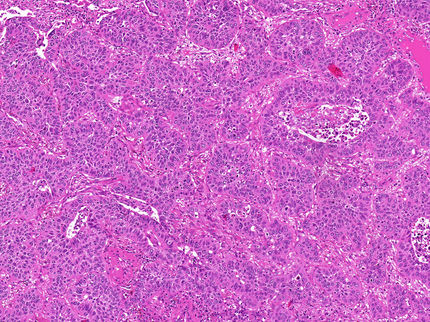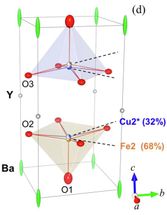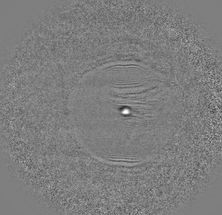Artificial Intelligence has learned to estimate oil viscosity
Indirect measurements are a lucky alternative for a variety of sectors
A group of Skoltech scientists developed machine learning (ML) algorithms that can teach artificial intelligence (AI) to determine oil viscosity based on nuclear magnetic resonance (NMR) data. The new method can come in handy for the petroleum industry and other sectors, which have to rely on indirect measurements to characterize a substance.

Symbolic image
Photo by Mae Mu on Unsplash
An important parameter of oil and petrochemicals, viscosity has implications for production and processing, while helping to better understand and model the natural processes in the reservoir. Standard oil viscosity assessment and monitoring techniques are very time and money consuming and sometimes technically unfeasible. NMR can help determine the properties thanks to a material's ability to absorb and emit electromagnetic energy. Oil is a chemically heterogeneous mixture of hydrocarbons, which makes the interpretation of NMR results extremely difficult.
A group of scientists from Skoltech, the University of Calgary (Canada), and Curtin University (Australia) processed NMR data using ML algorithms. Their model trained on NMR data on various types of oil from fields in Canada and the United States produced an accurate prediction of viscosity, which was confirmed by lab tests.
According to Dmitry Koroteev, a professor at the Skoltech Center for Hydrocarbon Recovery (CHR) and one of the study leads, their research illustrates how ML algorithms can help characterize materials' properties measured indirectly and, more specifically, by using NMR measurements instead of viscosimetry at the lab. In practical terms, this means that one can obtain information about oil in the subsurface reservoir without extracting samples and taking them to the lab for tests. "Surprisingly, ML works better here than the traditional correlations," comments Professor Koroteev. "The direct and indirect experimental measurements that we had at our disposal were a good training set for our ML algorithms. The tests demonstrated that the algorithms have good generalization ability and do not require retraining."
"What is especially interesting is the high accuracy ML models achieve on extra-heavy oil and bitumen samples. Due to their complex chemical composition, the relationship between NMR relaxation and viscosity is not well defined for these oil types. For the empirical models, the workaround for this is to make additional measurements to determine the relative hydrogen index (RHI) of the oil -- the information which is often not readily available or difficult to measure in the field accurately. Our study shows that by using ML-derived NMR viscosity models, these measurements are not necessary." - explains Skoltech-Curtin Ph.D. student Strahinja Markovic, the first author of the paper.
The scientists are positive that their method can find use beyond the petroleum industry. It is not infrequent that the test sample is unavailable for direct tests, which makes indirect measurements a lucky alternative for a variety of sectors, such as the food industry where the quality of fruit could be tested without even cutting them open, or in agriculture where soil quality assessment could cover much larger areas.
Original publication
Other news from the department science

Get the analytics and lab tech industry in your inbox
By submitting this form you agree that LUMITOS AG will send you the newsletter(s) selected above by email. Your data will not be passed on to third parties. Your data will be stored and processed in accordance with our data protection regulations. LUMITOS may contact you by email for the purpose of advertising or market and opinion surveys. You can revoke your consent at any time without giving reasons to LUMITOS AG, Ernst-Augustin-Str. 2, 12489 Berlin, Germany or by e-mail at revoke@lumitos.com with effect for the future. In addition, each email contains a link to unsubscribe from the corresponding newsletter.





















































